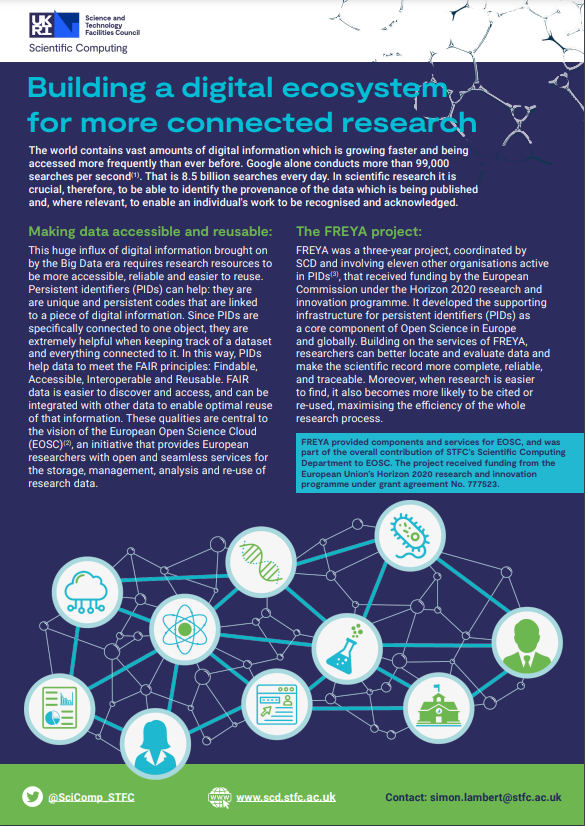A huge influx of digital information brought on by the Big Data era requires research resources to be more accessible, reliable and easier to reuse. Persistent identifiers (PIDs) can help: they are are unique and persistent codes that are linked to a piece of digital information. Since PIDs are specifically connected to one object, they are extremely helpful when keeping track of a dataset and everything connected to it. In this way, PIDs help data to meet the FAIR principles: Findable, Accessible, Interoperable and Reusable. FAIR data is easier to discover and access, and can be integrated with other data to enable optimal reuse of that information.
FREYA was a three-year project, coordinated by SCD and involving eleven other organisations active in PIDs, that received funding by the European Commission under the Horizon 2020 research and innovation programme. It developed the supporting infrastructure for persistent identifiers (PIDs) as a core component of Open Science in Europe and globally. Building on the services of FREYA, researchers can better locate and evaluate data and make the scientific record more complete, reliable, and traceable. Moreover, when research is easier to find, it also becomes more likely to be cited or re-used, maximising the efficiency of the whole research process.
Read the full article by clicking the image below:

FREYA's partners: STFC, CERN, Datacite, Pangaea, EMBL-EBI, British Library, DANS, ARDC, ORCiD, Crossref, Hindawi, PLOS.
